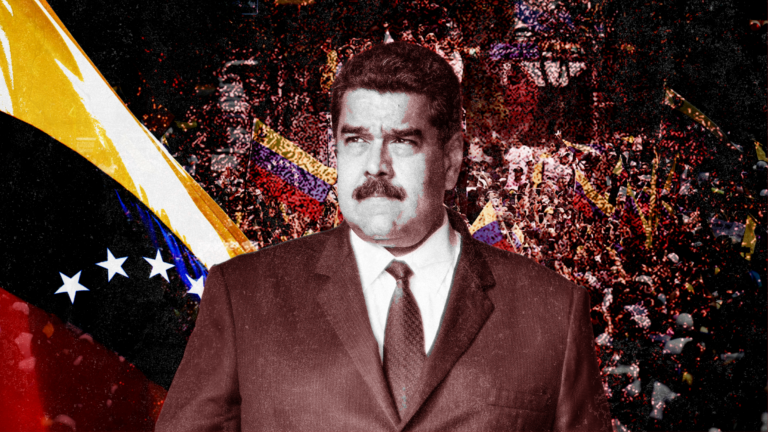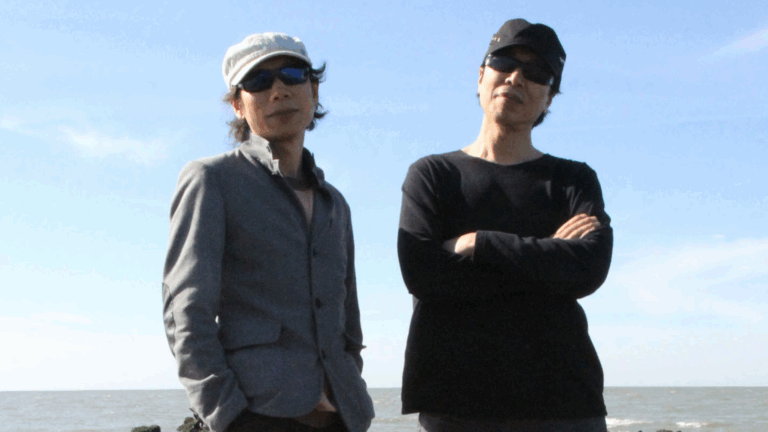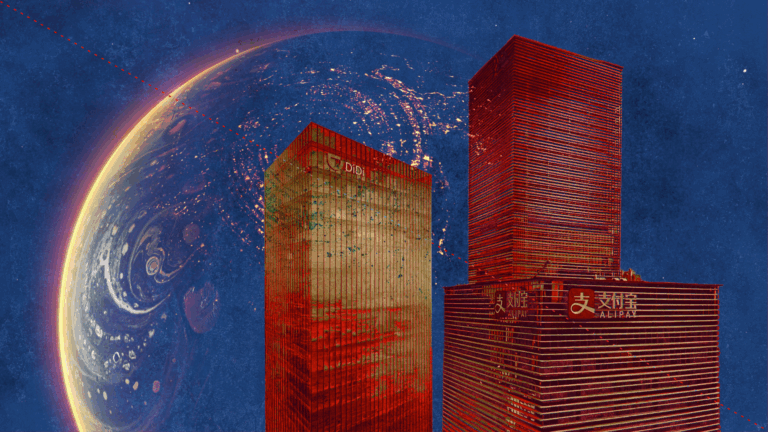By Kristen Anna
On this World Day Against Trafficking in Persons, there are over 24.9 million people subject to human trafficking, or modern slavery. Trafficking occurs in hundreds of countries and within various industry sectors, from domestic work in Saudi Arabia to factory work in Xinjiang, China.
Human trafficking is a massive worldwide phenomenon. The international community recognizes that issues like conflict and poverty contribute to human trafficking, but few discuss how authoritarianism lies at the heart of this issue.
While human trafficking exists everywhere, authoritarian regimes often perpetuate trafficking through weak anti-trafficking efforts — and some even engage in this heinous practice themselves. HRF’s analysis of the 2022 U.S. Department of State’s Trafficking in Persons (TIP) Report found that democratic regimes are more likely to develop policies to combat human trafficking, while authoritarian regimes are less likely to.
The U.S. State Department (DOS) ranks countries in tiers based on their anti-trafficking efforts, following standards from the UN Trafficking in Persons Protocol and the U.S. Trafficking Victims Protection Act (TVPA). The Department’s rankings are informed by factors like the enactment and implementation of anti-trafficking laws, prosecutions against traffickers, assistance for victims, and prevention efforts to reduce causes of trafficking.
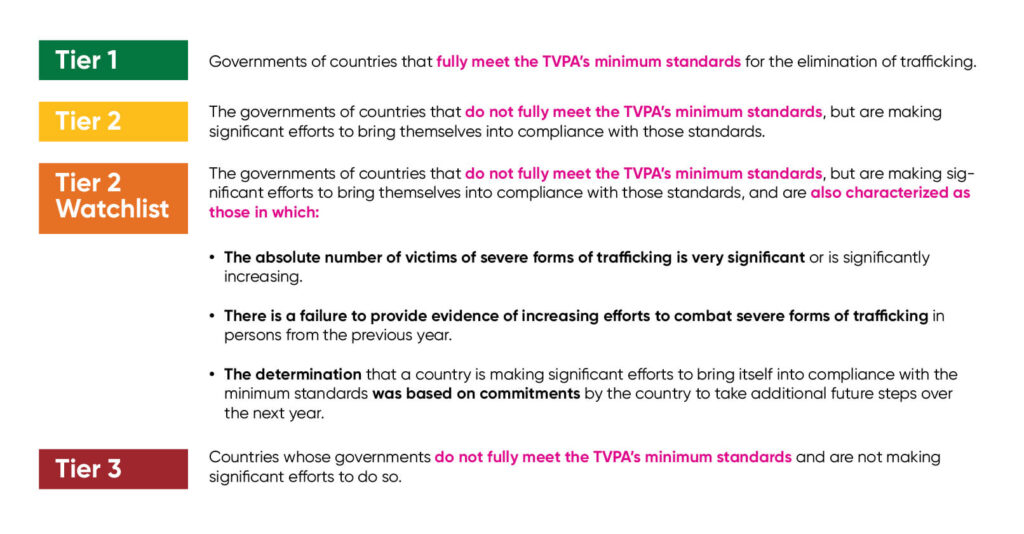
In HRF’s analysis of the 2022 TIP Report, 90 percent of Tier 1 states are democratic and only 10 percent are authoritarian. Meanwhile, 100 percent of Tier 3 countries, the worst performers, are authoritarian. Zero democracies were ranked in Tier 3 in both 2021 and 2022.
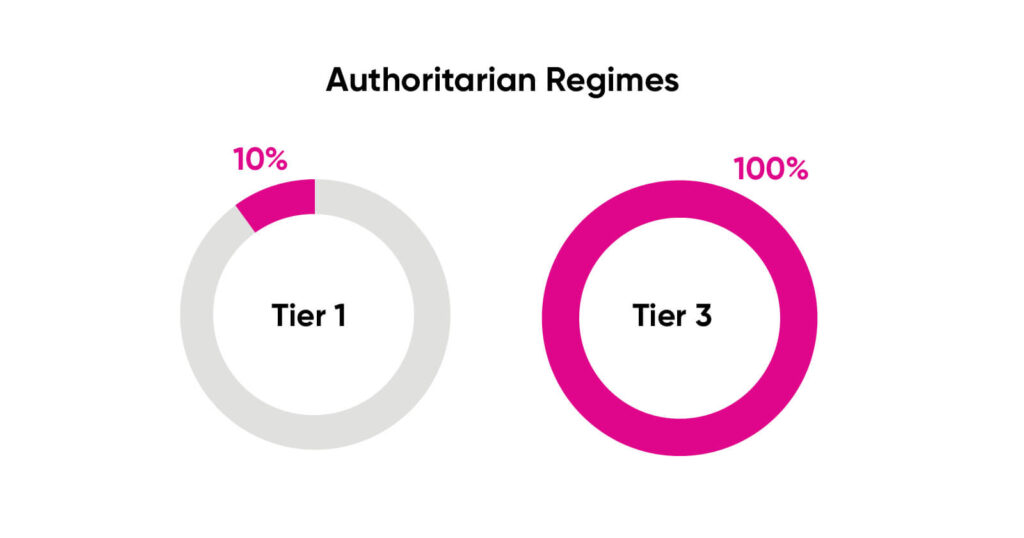
Authoritarian regimes are characterized by corruption, a lack of rule of law, and the crackdown or criminalization of civil society. Under these conditions, traffickers can commit crimes with impunity.
Police and politicians are often bribed to look the other way when trafficking occurs, or they may even participate in the trafficking themselves. For example, in 2017, Thai officials charged 62 individuals for trafficking Rohingya victims fleeing genocide in Burma. Those charged included a former Thai army Lieutenant General and a former mayor, alongside businessmen and gangsters.
In some cases, the authoritarian regime is the perpetrator of human trafficking. In Cuba, for example, the government exploits its people for financial gain during its international medical missions. While working abroad in these missions, Cubans often have their passports revoked and only receive five to 25 percent of their salary; the rest of the pay lines the pockets of the Cuban regime. If the individuals choose to abandon the program, the Cuban government can subject them to an eight year de facto entry ban, cutting them off from their home and families.
Authoritarian regimes lack accountability and have little motivation to protect their citizens. States like Saudi Arabia and Qatar continue to use the outdated “kafala,” or “sponsorship,” system, which allows for the exploitation of migrant workers, with detainment and deportation the reward for the victims who seek help. Workers under this system were exploited, for example, during the construction of stadiums and other critical infrastructure for the 2022 FIFA World Cup in Qatar, but those aware felt “powerless” to help them.
Unlike authoritarian regimes, democracies are more likely to encourage transparency and accountability when addressing human trafficking. Civil society groups can operate freely to provide necessary services to victims and lobby representatives to improve anti-trafficking policies.
Authoritarianism is a significant structural root of human trafficking, and must be considered when implementing anti-trafficking efforts. To combat the most severe forms of human trafficking worldwide, we must advocate against authoritarianism and defend democracy.
Stay tuned for more publications from HRF on human trafficking and authoritarianism!
Kristen Anna is a Research Fellow at the Human Rights Foundation, where she focuses on human trafficking, sanctions, and corruption. Prior to joining HRF, Kristen worked on Global Magnitsky sanctions with the U.S. Department of State.





